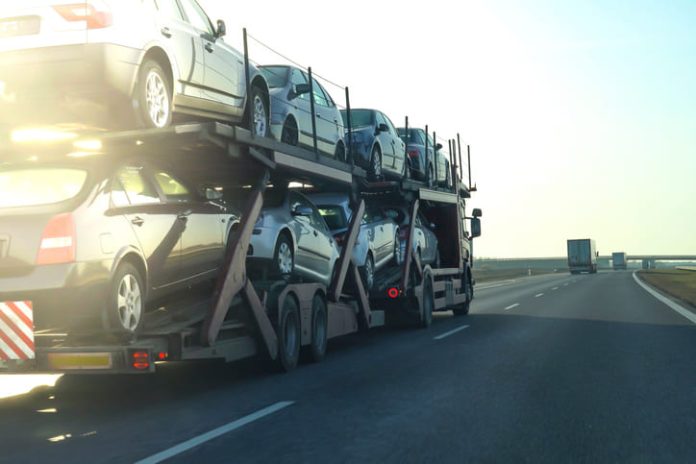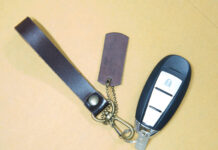When it comes to shipping your car to or from California, the choice between an open or closed carrier can significantly impact your experience and peace of mind. Both options have their distinct advantages and disadvantages, and the right choice often depends on your specific needs and circumstances.
In this article we’ll talk about the key differences between open and closed car carriers, their pros and cons, and provide guidance on which option might be best for you. Learn more here https://www.forbes.com/home-improvement/moving-services/cost-to-ship-a-car/.
Understanding Open Car Carriers
What is an Open Car Carrier?

An open car carrier is the most common and cost-effective method of transporting vehicles. These carriers are typically double-deck trailers that can hold between 7 to 10 cars at a time. The open design means that the cars are exposed to the elements during transit.
Advantages of Open Car Carriers
Open carriers are generally less expensive than closed carriers due to their ability to transport more vehicles at once. This makes them a popular choice for dealerships and individuals looking to save on shipping costs. Due to their popularity, open carriers are more readily available, which can lead to faster shipping times.
This is especially beneficial if you have a tight schedule or need your vehicle transported quickly. With open carriers, it’s easier to inspect the vehicles during transit. The visibility allows for quicker and more frequent checks, reducing the risk of unnoticed damage. All you have to do is contact a reliable California auto transport service and you’re good to go!
Disadvantages of Open Car Carriers
One of the biggest downsides is that vehicles are exposed to weather conditions, road debris, and potential damage from external factors. This exposure can lead to scratches, dents, or other forms of minor damage. While relatively secure, open carriers are more susceptible to theft or vandalism compared to closed carriers, especially when transporting high-value or classic cars.
Open carriers offer limited protection against environmental hazards such as dust, dirt, and bird droppings, which can result in the need for a thorough cleaning upon arrival.
Understanding Closed Car Carriers
What is a Closed Car Carrier?
A closed car carrier, also known as an enclosed carrier, transports vehicles in a fully enclosed trailer. These carriers typically hold fewer vehicles—usually between 2 to 7 cars—depending on the size of the trailer. The enclosed design provides maximum protection for vehicles during transit.
Advantages of Closed Car Carriers
The primary benefit of a closed carrier is the protection it offers against weather conditions, road debris, and other external factors. This makes it an ideal choice for high-value, luxury, classic, or collectible cars. Enclosed carriers offer better security against theft and vandalism.
The fully enclosed design ensures that vehicles are not visible to passersby, adding an extra layer of security. Knowing that your vehicle is well-protected can provide significant peace of mind, especially when transporting rare or expensive cars. Read more here.
Disadvantages of Closed Car Carriers
Closed carriers are more expensive than open carriers due to the increased protection and lower vehicle capacity. This higher cost can be a deciding factor for many individuals. Enclosed carriers are less common than open carriers, which can result in longer wait times and potentially slower shipping speeds. With the ability to carry fewer vehicles, enclosed carriers may not be as efficient for bulk transportation needs, making them less suitable for dealerships or large-scale relocations.
Factors to Consider When Choosing Between Open and Closed Car Carriers
Vehicle Value and Type
The value and type of your vehicle play a significant role in determining the best shipping method. For standard vehicles, open carriers are usually sufficient and cost-effective. However, for high-value, luxury, classic, or antique cars, the added protection of a closed carrier is often worth the extra cost.
Budget Constraints
Budget is a crucial factor for most people when deciding between open and closed carriers. If cost is a major concern, an open carrier will likely be the better option. However, if you have a higher budget and want the maximum protection for your vehicle, a closed carrier is the way to go.
Shipping Distance and Conditions
The distance and conditions of the shipping route can influence your decision. For long-distance shipments, particularly those crossing multiple states with varying weather conditions, a closed carrier might offer better protection. For shorter distances or routes with predictable weather, an open carrier could suffice.
Time Sensitivity
If you need your vehicle transported quickly, the availability of open carriers might make them the better choice. However, if you can afford to wait for an enclosed carrier, the added protection might be worth the delay.
Peace of Mind
Your personal comfort level with the risk of potential damage or theft should also be considered. If you’re particularly concerned about your vehicle’s safety and condition, opting for a closed carrier can provide peace of mind.



































































